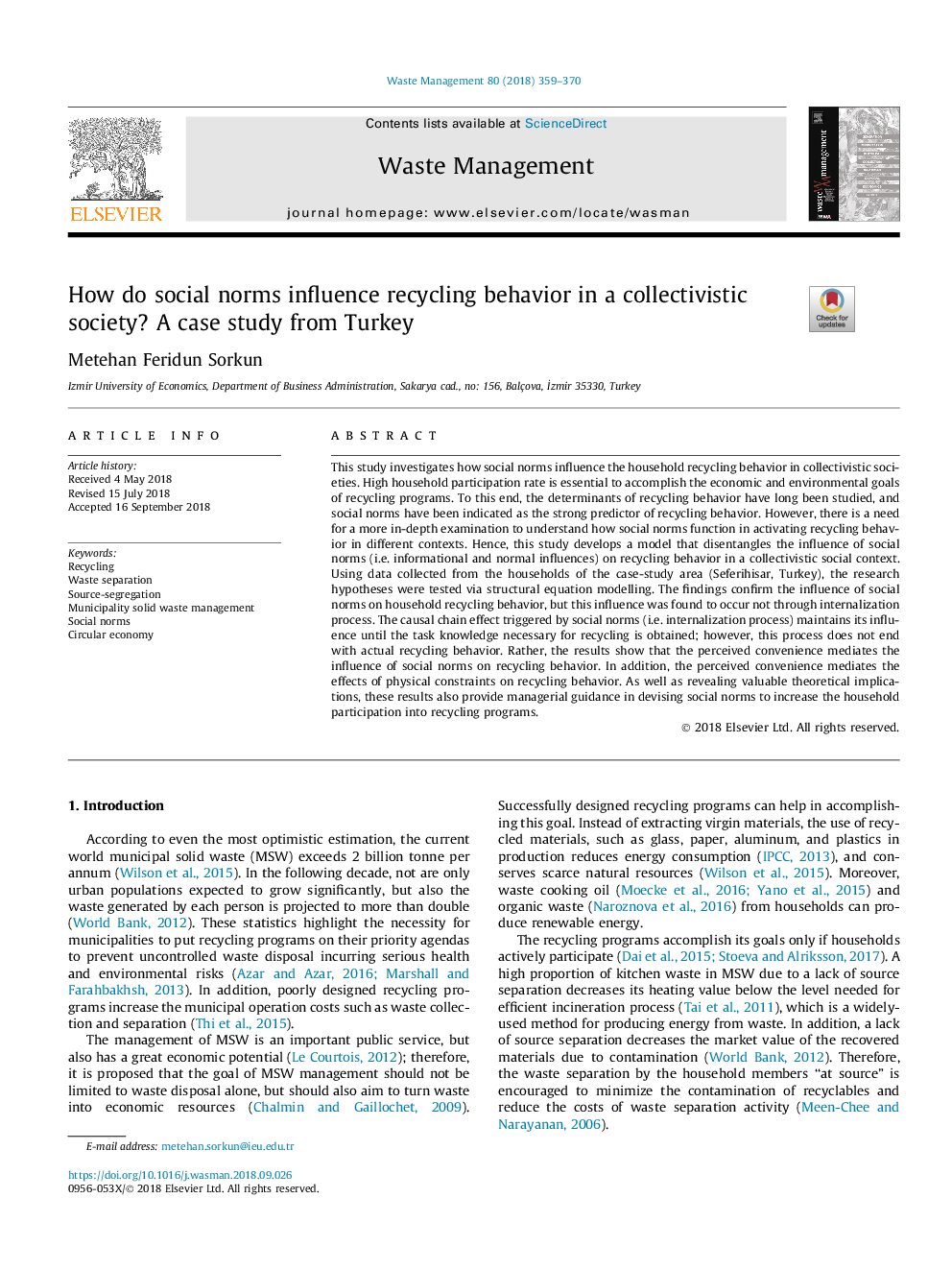| کد مقاله | کد نشریه | سال انتشار | مقاله انگلیسی | نسخه تمام متن |
|---|---|---|---|---|
| 11028649 | 1646759 | 2018 | 12 صفحه PDF | دانلود رایگان |
عنوان انگلیسی مقاله ISI
How do social norms influence recycling behavior in a collectivistic society? A case study from Turkey
ترجمه فارسی عنوان
چگونه هنجارهای اجتماعی بر رفتار بازیافت در جامعه ی جمعی تاثیر می گذارند؟ مطالعه موردی از ترکیه
دانلود مقاله + سفارش ترجمه
دانلود مقاله ISI انگلیسی
رایگان برای ایرانیان
کلمات کلیدی
بازیافت، جداسازی زباله، منبع جداسازی، مدیریت زباله های شهرداری، هنجارهای اجتماعی، اقتصاد مدرن،
موضوعات مرتبط
مهندسی و علوم پایه
علوم زمین و سیارات
مهندسی ژئوتکنیک و زمین شناسی مهندسی
چکیده انگلیسی
This study investigates how social norms influence the household recycling behavior in collectivistic societies. High household participation rate is essential to accomplish the economic and environmental goals of recycling programs. To this end, the determinants of recycling behavior have long been studied, and social norms have been indicated as the strong predictor of recycling behavior. However, there is a need for a more in-depth examination to understand how social norms function in activating recycling behavior in different contexts. Hence, this study develops a model that disentangles the influence of social norms (i.e. informational and normal influences) on recycling behavior in a collectivistic social context. Using data collected from the households of the case-study area (Seferihisar, Turkey), the research hypotheses were tested via structural equation modelling. The findings confirm the influence of social norms on household recycling behavior, but this influence was found to occur not through internalization process. The causal chain effect triggered by social norms (i.e. internalization process) maintains its influence until the task knowledge necessary for recycling is obtained; however, this process does not end with actual recycling behavior. Rather, the results show that the perceived convenience mediates the influence of social norms on recycling behavior. In addition, the perceived convenience mediates the effects of physical constraints on recycling behavior. As well as revealing valuable theoretical implications, these results also provide managerial guidance in devising social norms to increase the household participation into recycling programs.
ناشر
Database: Elsevier - ScienceDirect (ساینس دایرکت)
Journal: Waste Management - Volume 80, October 2018, Pages 359-370
Journal: Waste Management - Volume 80, October 2018, Pages 359-370
نویسندگان
Metehan Feridun Sorkun,
